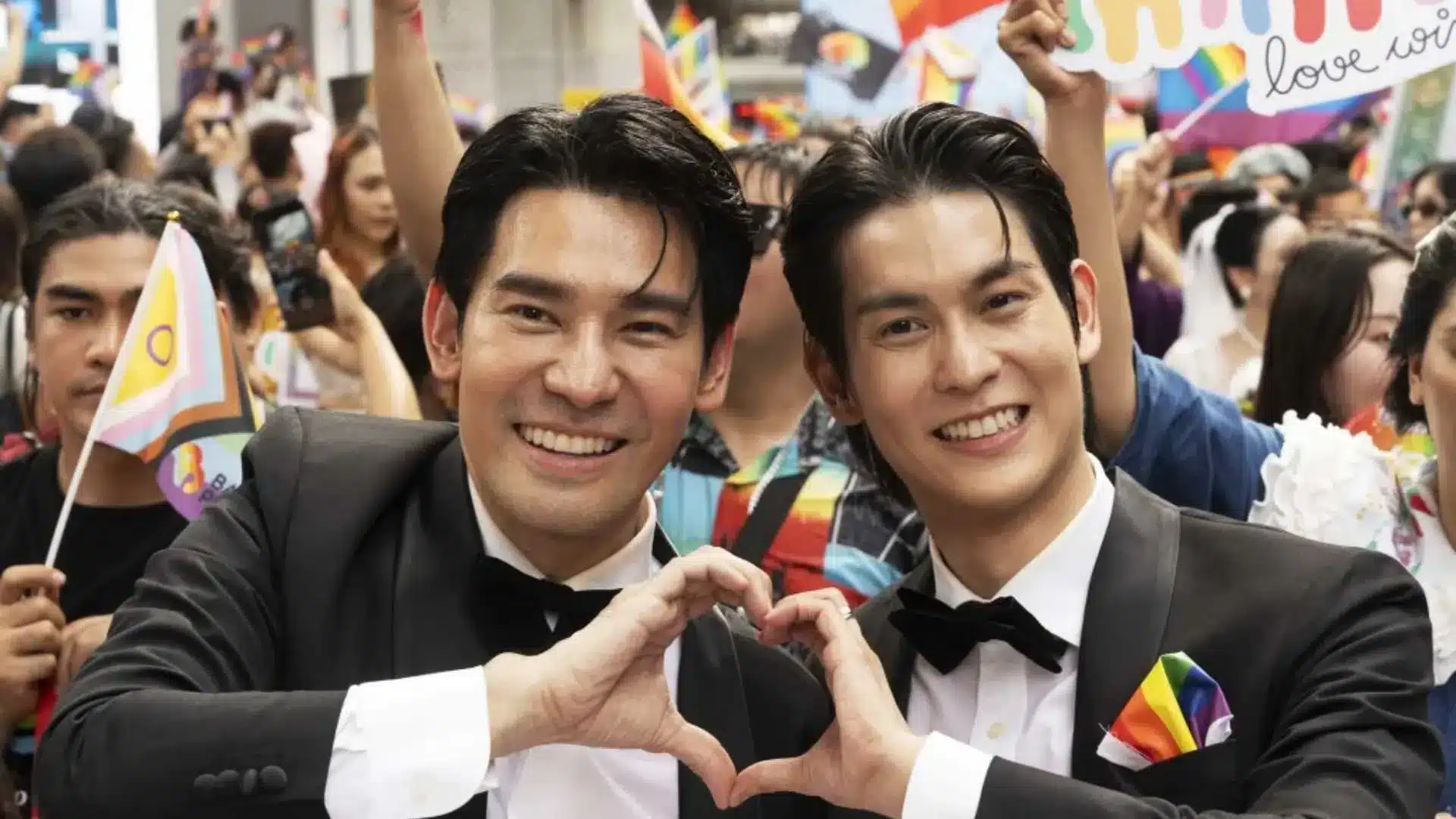Thailand’s Historic Step Towards Marriage Equality

Thailand has made a significant leap forward in the fight for LGBTQ+ rights by legalizing same-sex marriage. This landmark decision marks a moment of celebration for many, as over a hundred couples are set to tie the knot in a vibrant ceremony at one of Bangkok’s largest shopping malls. Ann “Waaddao” Chumaporn, a prominent activist, reflects on the long journey filled with challenges and tears that led to this momentous occasion. As Thailand joins Taiwan and Nepal as one of the few Asian countries to recognize same-sex marriage, questions arise about the factors that made this change possible in a region where such rights remain elusive.
A Long and Challenging Journey
The road to marriage equality in Thailand has been anything but straightforward. Despite the country’s reputation for being open and accepting of LGBTQ+ individuals, achieving equal rights required persistent efforts to shift societal and governmental attitudes. Ann “Waaddao” Chumaporn, who has been at the forefront of this movement, recalls the struggles faced by the LGBTQ+ community over the years.
The first Pride march in Thailand took place just 25 years ago, and it was met with significant challenges. Initially, organizers struggled to gain police approval, and the events were often chaotic and unfocused. The situation worsened in 2009 when a planned Pride march in Chiang Mai was canceled due to threats of violence. For many years, acceptance was hard to come by, both from families and society at large. “There were times when we did not think marriage equality would ever happen, but we never gave up,” Waaddao stated, emphasizing the resilience of the community.
Over the years, visibility and representation of LGBTQ+ individuals in Thai society have improved. The portrayal of LGBTQ+ characters in television dramas has evolved from stereotypes to more relatable and realistic representations. This shift has played a crucial role in changing public perceptions and fostering acceptance across generations.
Negotiation Over Conflict
While Thailand is known for its general tolerance towards LGBTQ+ individuals, the journey to legalize same-sex marriage required a strategic approach. Activists recognized that they needed to engage in dialogue rather than conflict. Chakkrit “Ink” Vadhanavira, who has been in a same-sex relationship since 2001, recalls a time when homosexuality was still classified as a mental illness by the Thai Ministry of Health.
During that period, societal acceptance was minimal, especially in the entertainment industry. Chakkrit and his partner chose to step away from the limelight to avoid the stress and scrutiny that came with being public figures. However, the landscape has changed significantly since then. The rise of “Boy Love” dramas, which depict romantic relationships between young men, has garnered immense popularity and helped normalize LGBTQ+ narratives in Thai culture.
Activists united under campaigns like Change 1448 and the Rainbow Coalition for Marriage Equality, working collaboratively with political parties to advocate for legal changes. The resurgence of Pride marches and the promotion of Thailand as a welcoming destination for LGBTQ+ travelers further contributed to shifting societal attitudes. “We did not fight, we negotiated,” said Tinnaphop Sinsomboonthong, an academic and activist, highlighting the importance of dialogue in the movement for equality.
Political Winds of Change
The political landscape in Thailand has also played a pivotal role in the advancement of LGBTQ+ rights. Following a coup in 2014, the country was governed by a conservative military regime that was reluctant to recognize same-sex marriage. However, the 2019 election brought a new wave of hope with the emergence of the Future Forward party, which openly supported marriage equality.
Although Future Forward was dissolved a year later, the party’s success in the election indicated a growing demand for change among the Thai populace. The subsequent protests led by students, which included LGBTQ+ activists, further amplified the call for reforms. Despite facing setbacks, the 2023 election saw the successor to Future Forward, the Move Forward party, gain significant traction, reflecting a shift in public sentiment towards greater acceptance of LGBTQ+ rights.
As the government moved to legalize same-sex marriage, it became clear that this issue was less contentious than before. The coalition government, formed without Move Forward, recognized the potential benefits of passing the marriage equality law to gain public approval. This political alignment, combined with societal changes, created the right environment for this historic legislation.
A New Era for LGBTQ+ Rights and Tourism
Thailand’s decision to legalize same-sex marriage positions it as a leader in LGBTQ+ rights in Asia. While countries like Malaysia, Indonesia, and Brunei maintain strict anti-LGBTQ+ laws, Thailand’s progressive stance offers a glimmer of hope for the region. The growing acceptance of LGBTQ+ individuals in Thailand is expected to boost tourism, particularly from same-sex couples seeking a welcoming environment.
As Thailand emerges as a safe haven for LGBTQ+ travelers, the legal recognition of same-sex marriages will allow couples to enjoy nearly all the rights and protections afforded to heterosexual couples. This change not only enhances the quality of life for LGBTQ+ individuals in Thailand but also positions the country as a desirable destination for those seeking acceptance and equality.
Observer Voice is the one stop site for National, International news, Sports, Editor’s Choice, Art/culture contents, Quotes and much more. We also cover historical contents. Historical contents includes World History, Indian History, and what happened today. The website also covers Entertainment across the India and World.

